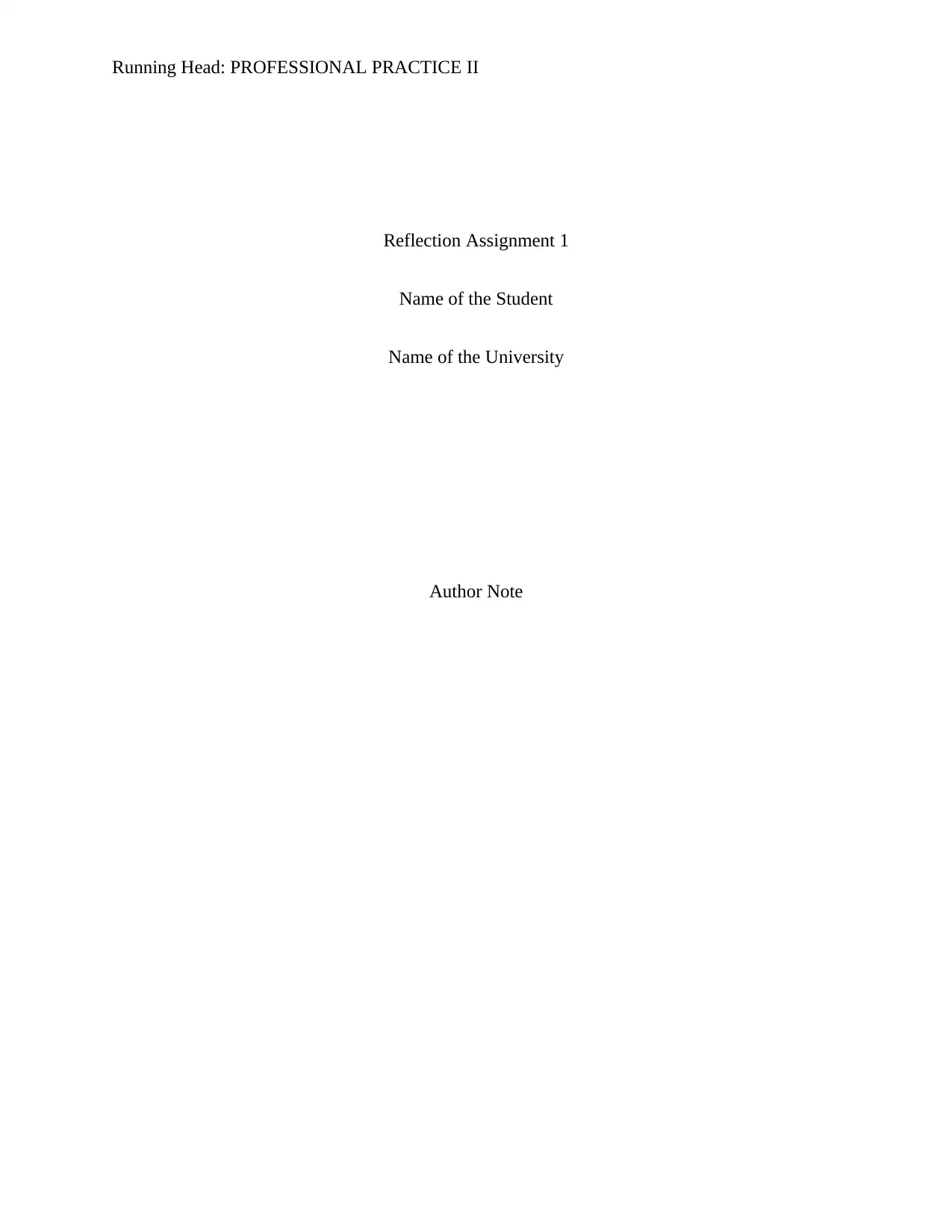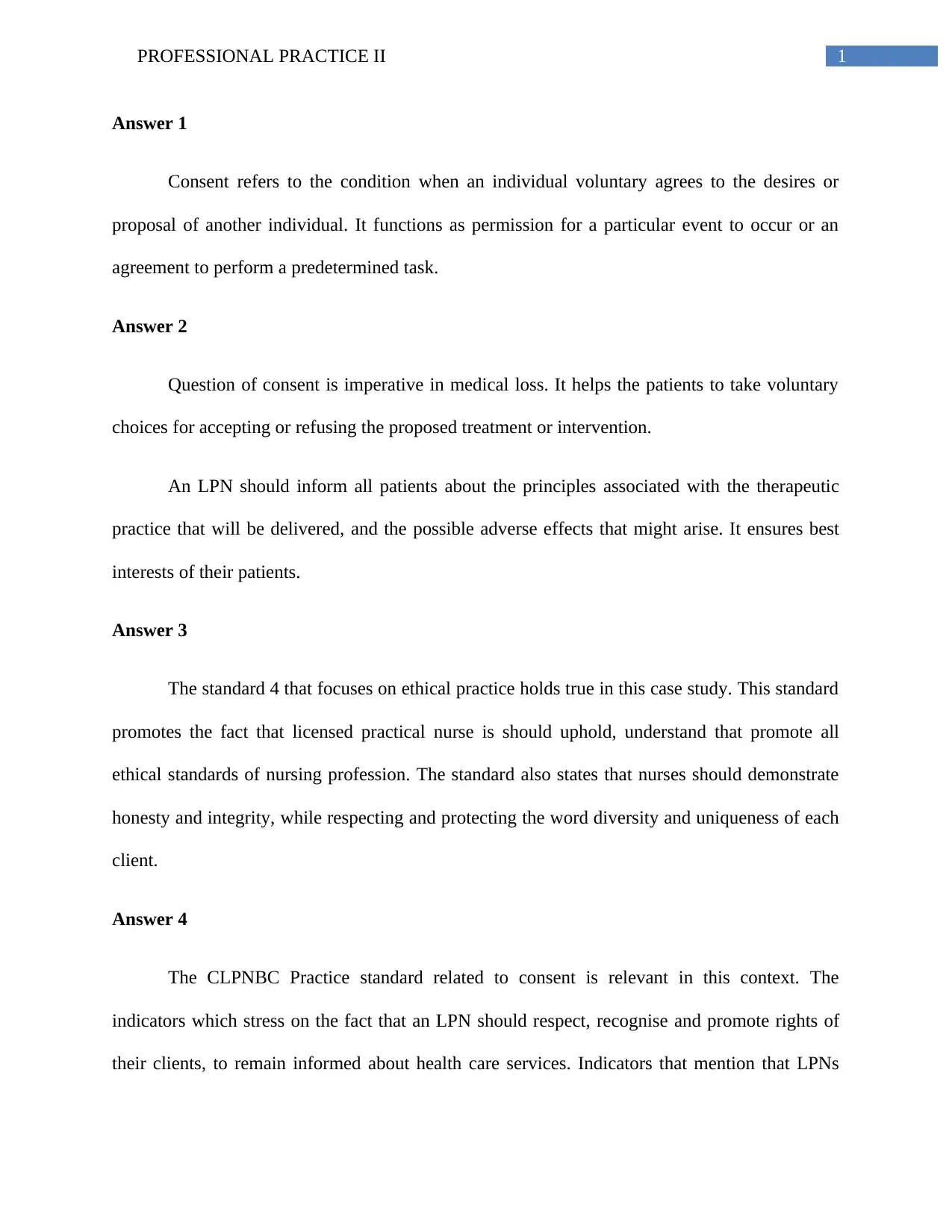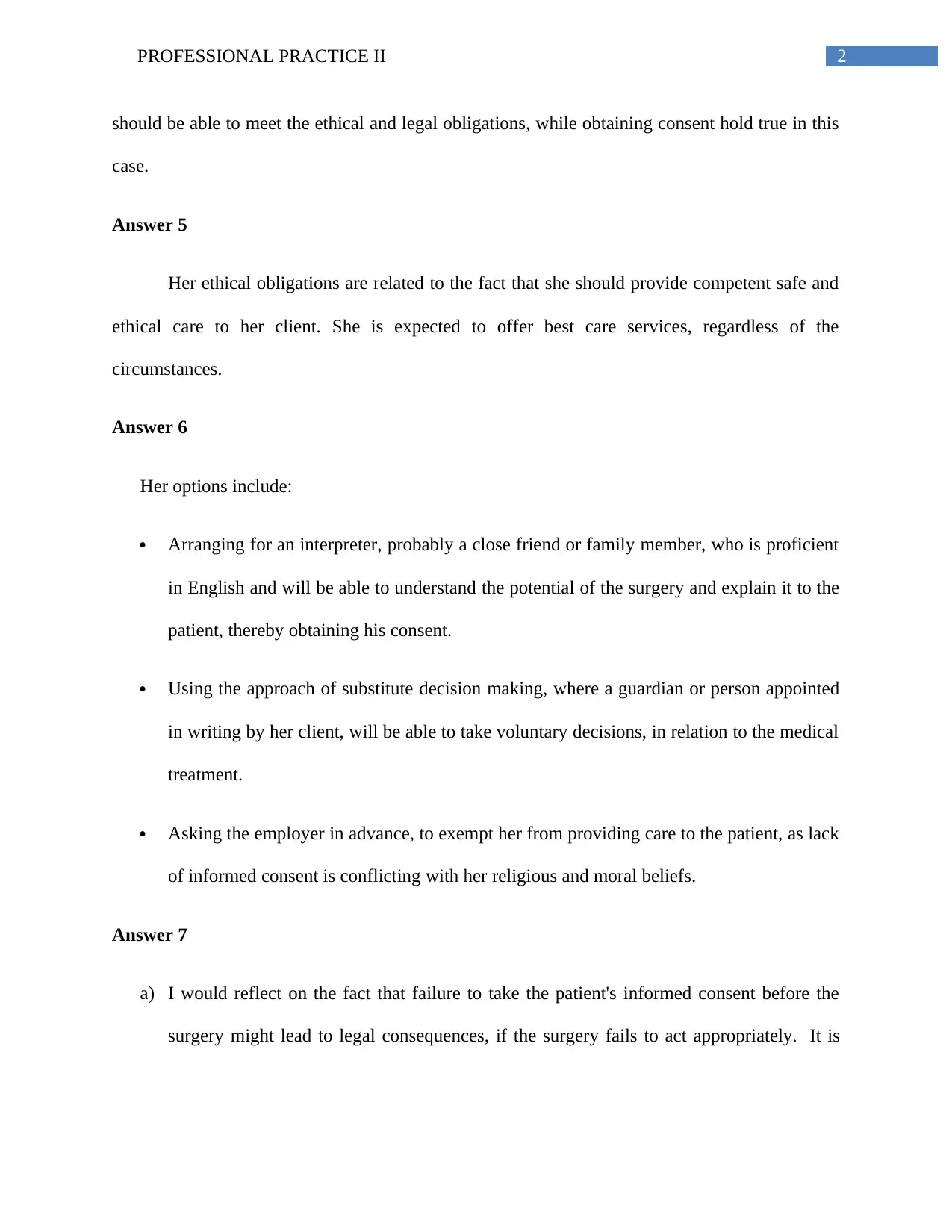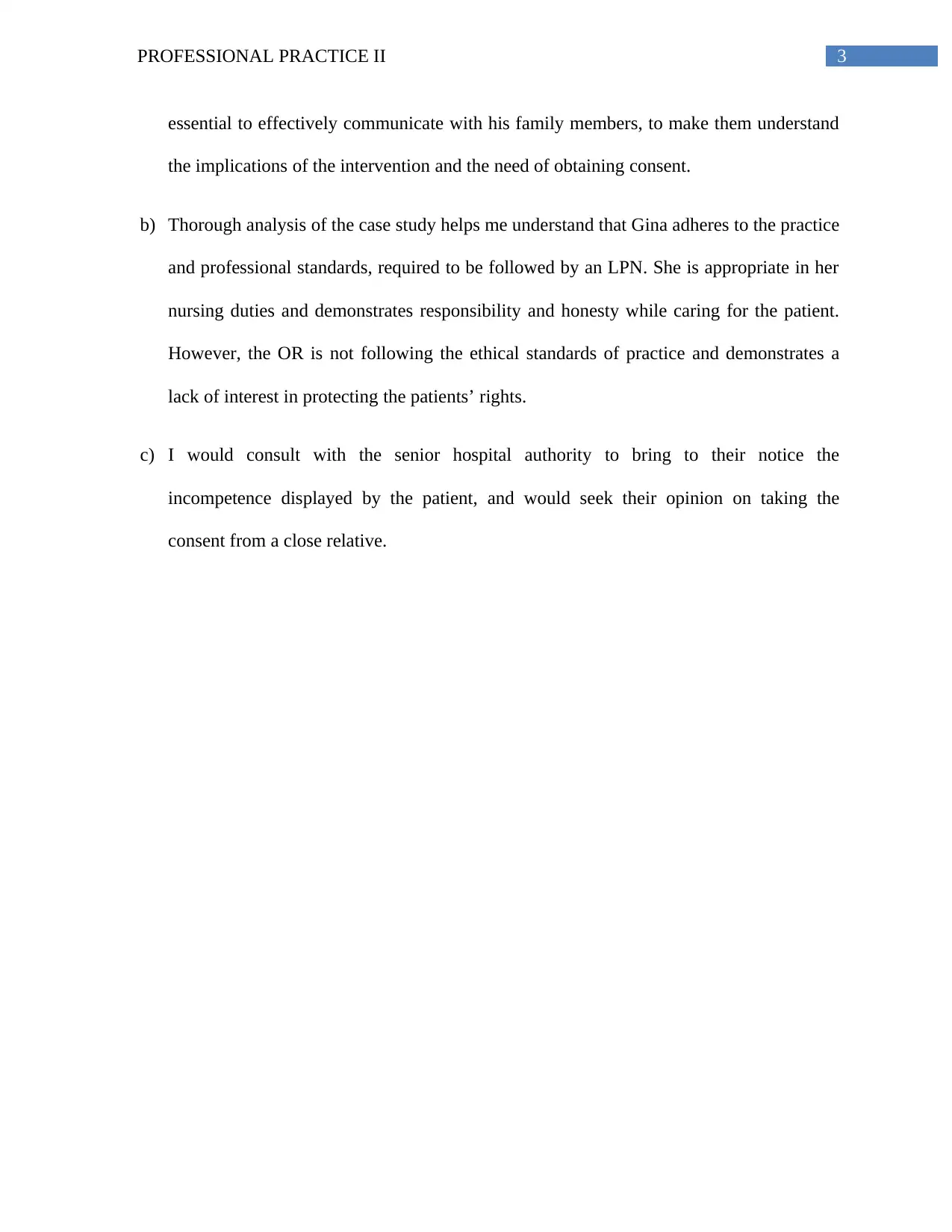Professional Practice II: Analyzing Ethical Dilemmas in Healthcare
VerifiedAdded on 2023/06/14
|4
|593
|197
Case Study
AI Summary
This case study examines the ethical obligations of a Licensed Practical Nurse (LPN) in verifying patient consent, particularly in a busy surgical unit. The scenario involves Mr. Saara, a patient with limited English proficiency, who has not signed the consent form before surgery. Gina, the LPN, faces a dilemma when pressured by the OR staff to obtain a signature without ensuring informed consent. The analysis highlights the importance of ethical practice, as outlined in Standard 4, and adherence to CLPNBC Practice Standards related to consent. Gina's ethical obligations include providing competent, safe, and ethical care, regardless of the circumstances. Her options involve arranging for an interpreter, utilizing substitute decision-making, or requesting exemption from caring for the patient due to conflicting religious and moral beliefs. Reflecting on the situation reveals the potential legal consequences of proceeding without informed consent and the need for effective communication with family members. While Gina adheres to professional standards, the OR's actions demonstrate a lack of ethical practice and disregard for patient rights. Consulting with senior hospital authorities is recommended to address the incompetence and ensure proper consent procedures are followed.
1 out of 4










![[object Object]](/_next/static/media/star-bottom.7253800d.svg)